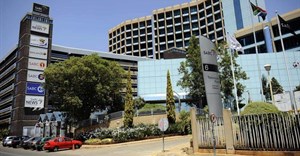Business and corruption: making ethics pay off

AR: There seems to be an assumption that corruption primarily concerns the public sector. Yet you focus on the corporate world.
GK: Often there is a blame game. The private sector blames the public sector. The public sector retorts that it is the private sector which is the initiator. The truth is that there is supply and demand and both are complicit. But it is also true that the more the involvement of government in economic activity in general, the higher the degree of abuse of power and corruption.
Corruption, experts agree, is a systemic issue which involves society as a whole. It involves both private and public sectors. It involves education, the basic economic system, the regulatory system, how the economy is run and more generally the ethical values which are in place. In principle, if the rules of the game are clear and they are enforced strictly, if there is a distinction between private sector competition on the one hand and rule-making and government entities on the other, then there is less opportunity for corruption.
AR: In Africa, the state is generally very weak, with little effective regulation.
GK: In most countries today, since the adoption of the UN Convention Against Corruption [in 2003], corruption is subject to criminal law. The problem is effective implementation. The efficiency of public institutions in enforcing and implementing what governments at the highest level have ratified is partly a function of institutional capacity. But it is also a function of priority setting, what is considered important.
Today, unlike ten years ago, business is actually calling for clear signals of the rules of the game. They say that if corruption enforcement is not working well, not much else will be working either.
AR: Do African businesses share that view?
GK: I was recently at one of our regional meetings of African Global Compact networks - and we have networks in about 15 African countries. To my amazement, all business leaders, irrespective of the country, when asked what their priority was, said that it was reducing corruption and creating an enabling environment for obtaining a license to import, export and so forth. It is always about payments. They said, "We have to pay so many institutional players and these transaction costs hold us back." So, corruption is considered priority number one by African business leaders.
AR: How do you convince a company to stop paying bribes, especially in countries where corruption is widespread and many other companies are also paying bribes or kick-backs in order to get contracts?
GK: This is the basic dilemma. If I, as an individual, say no to bribery, extortion and corruption and then my competitor gets the business, I will suffer a disadvantage. The answer to that is two-fold. We must work at a policy-level to improve the situation. In the country where I was born, Germany, bribery was basically tax deductible until a few years ago. Only recently have Germany and other OECD [Organisation for Economic Cooperation and Development] countries gotten serious about corruption.
But at the corporate level...the only way forward is what we call collective action. If you manage to motivate them to act together, at the same time, and possibly with public policy counterparts, then you have a good chance of making a difference. We have done this already in a few countries.
AR: African governments are often very eager to attract foreign direct investment (FDI). In the process, are they sometimes less vigilant than they should be?
GK: Given the need to create employment and to improve the standard of living for a large number of people, one can understand the desire to attract FDI. With Asian countries, especially China, now major players, that increases the potential supply of investors overall. That is a good thing for African countries. Hopefully their bargaining position is being strengthened through that.
AR: In looking at anti-corruption initiatives in Africa, one often finds that civil society organisations and the media have played key roles.
GK: The notion of transparency and the engagement of different actors is very important. The deeper meaning of fighting corruption is transparency. The more open societies are...the easier it is for this anti-corruption agenda to be taken up. [Anti-corruption] at its core it means good governance at the corporate level. You cannot achieve clean environmental performance, you cannot achieve good human rights respect if you do not have a clear notion of transparency and disclosure. A growing number of companies are embracing this agenda. Not because they are worried that they may be caught and found not to be in compliance. But rather because being ethical does pay off.
Article published courtesy of UN/Africa Renewal










